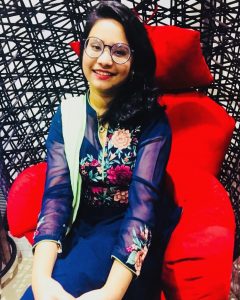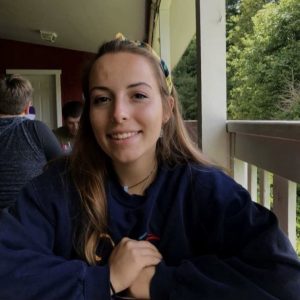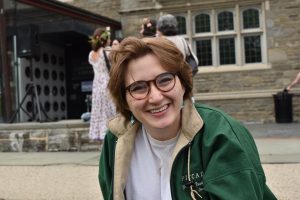REFLECTION by Tanjuma Haque (BMC 2021)
Even though I had already seen the set-up of Gardens Speak before and knew what was going to happen, the moment I stepped in through the doors, everything felt completely alien. The lights were dim on the two pews where the ten of us went and sat as the guide handed us one card each person.
As I entered the space where the garden with the graves was made, honestly, I was scared for a moment or two. Since we all had to take off our shoes before we entered the space, the soil was cold under my bare feet as I searched for the person’s grave whose headstone’s picture was on my card.
The humming noise clarified into words as I dug the soil near the headstone with my hands. I put my head next to the pillow with their name, in front of the headstone, and lied and listened quietly. I heard Mustafa’s narrative of how everything was before and after he died, spoken by a man in the first person.
I had taken a Middle Eastern Politics class last semester and I had seen movies from the Middle East that showcased the different uprisings and killings and I knew about the conflicts, but those were nothing compared to when I heard, what seemed to me, Mustafa’s voice, speaking about how he died with many others when a missile struck a peaceful rally and that his girlfriend came and saw him in pieces and that he wanted to say that he loves her, but he no longer could.
I am not a very emotional person and I did not cry then, but when I was writing the letter to Mustafa, I thought that he probably could see me write the letter or something. Later, I went to Tell Me What I Can Do and that is when I almost cried when I saw so many letters full of hope and prayers and support for all the martyrs.
Gardens Speak, possibly the best live artwork I have seen, was a phenomenal experience. From my perspective, it is an extraordinary piece of art, it has the ability to bring people from different parts of the world, with different beliefs, religions, and races, together because nothing motivates love more than the sense of unfair loss. When we, the audience, write letters to the martyr, we all get bound by the same affection.



